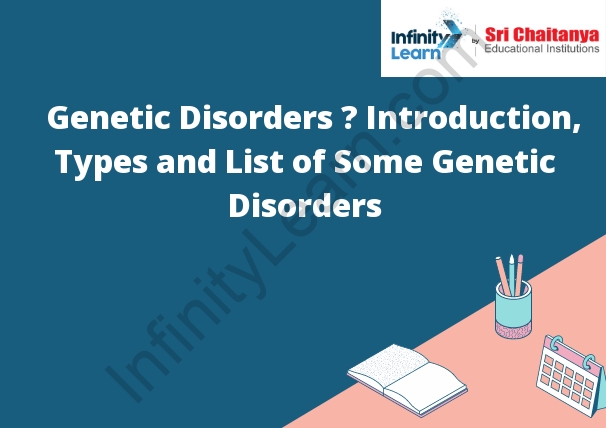Table of Contents
What are Genetic Disorders?
Genetic disorders are conditions that are caused by abnormalities in the genetic material inside a person’s cells. This genetic material is responsible for the instructions that control the development and function of all the cells in the body. Genetic disorders can be passed down from parents to children (inherited) or they can develop randomly (spontaneous).
Some genetic disorders are mild, while others can be life-threatening. Many genetic disorders can be treated or managed with medication or special diets, but there is no cure for most of them.

Types of Genetic Disorders
There are many different types of genetic disorders. Some are caused by a change in a single gene, while others are caused by changes in multiple genes. Some genetic disorders are passed down from parents to their children, while others occur randomly. Some genetic disorders can be treated with medication or surgery, while others are incurable.
List of Some Genetic Disorders
There are many different genetic disorders that can affect a person. Some of the most common genetic disorders include Down syndrome, cystic fibrosis, and sickle cell anemia.
Down syndrome is a genetic disorder that occurs when a person has an extra copy of chromosome 21. This can cause a variety of health problems, including intellectual disability, heart defects, and problems with the digestive system.
Cystic fibrosis is a genetic disorder that affects the lungs and digestive system. This disorder causes the body to produce thick, sticky mucus that can clog the lungs and digestive system.
Sickle cell anemia is a genetic disorder that affects the red blood cells. This disorder causes the red blood cells to become sickle-shaped, which can block blood vessels and cause pain and other health problems.
Genetic Counselling
Genetic counselling is the process of providing information and support to people who may have, or who may be at risk of having, a genetic disorder. It involves helping people understand their genetic makeup and the risks associated with it. Genetic counselling can also help people make decisions about their health and future.
What are the Symptoms of Genetic Disorders?
There is no single answer to this question as the symptoms of genetic disorders can vary widely from disorder to disorder. However, some general symptoms that may be associated with genetic disorders include developmental delays, intellectual disabilities, physical abnormalities, and/or health problems. Additionally, many genetic disorders are accompanied by unique symptoms that are specific to that disorder. For example, a child with Down syndrome may have a flattened facial profile, small ears, and an upward slant to their eyes.
What is the Treatment for Genetic Disorders?
There are various treatments for genetic disorders, depending on the specific disorder. For example, some genetic disorders can be treated with medication, while others may require surgery. In some cases, a person with a genetic disorder may need to make lifestyle changes in order to manage the disorder.
What are the Methods of Identification of Genetic Problems?
There are a number of methods that can be used to identify genetic problems. One common method is a blood test called a karyotype. This test looks at the chromosomes in a person’s blood to see if there are any abnormalities. Another common method is a genetic test. This test looks at the genes in a person’s DNA to see if there are any abnormalities.






